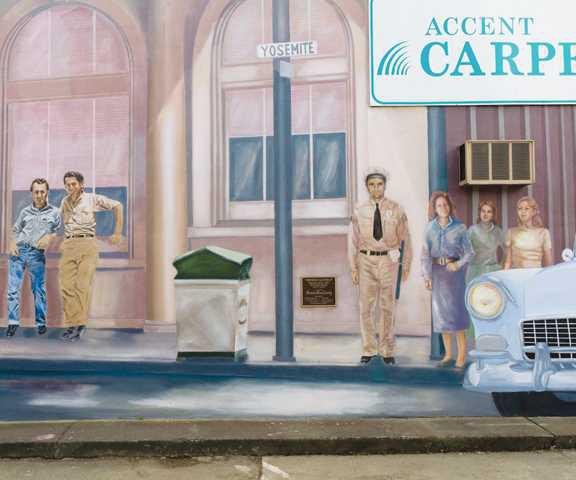Hiram Johnson is credited with breaking the chokehold powerful interests such as Southern Pacific Railroad had on California after the dawn of the 20th century.
His election as governor in 1910 brought a wave of progressive reforms to Sacramento that cleaned up state governance.
Among the critical reforms Johnson successfully championed were:
*The election of U.S. Senators by direct popular vote rather than the state legislature (which was later ratified nationwide by a constitutional amendment).
*The ability for the people to trigger recall elections.
*The establishment of the initiative and referendum process.
“While I do not by any means believe the initiative, the referendum and the recall are the panacea for all our political ills,” Johnson proclaimed in his 1911 inaugural address, “they do give to the electorate the power of action when desired, and they do place in the hands of the people the means by which they may protect themselves.”
Now, 112 years later, wolves in sheep’s clothing pretending to be progressives, are trying to dilute the process that allowed California voters to have a direct say in how their state is governed.
It’s in the form of Assembly Bill 421.
Among its provisions:
*It would limit the time for collecting signatures to qualify initiatives for the ballot blocking state laws that are passed by the California Legislature and signed into law from being implemented to 90 days as opposed to all other ballot campaigns that would still have 180 days.
*It also requires 10 percent of all initiative signatures be collected by volunteers. There is an exemption, of course, which is labor unions. Given they are big contributors to the author of AB421, Assemblymember Isaac Bryan, that should come as no surprise.
*Petitions would be required to print the “official top funders” of the signature drive on the top of the petition and require those that add their name and address to the petition to also initial that they read who the top donors are.
*Paid signature collectors would also have to register with the state as well as receive training from the state. Again, this applies to only those initiatives taking on state laws that have been passed.
It should be noted that the number of signatures that would need to be gathered in 90 days would still be as many as those required in 180 days. Given it is based on the percentage of voters in the last election, that today would translate into 500,000 plus valid signatures.
The proposed law is the result of Sacramento politicians — and special interest groups — seething because voters at the ballot reversed legislation such as treating gig economy workers like regularly payroll workers.
The backers of AB421 will point out it is the big bad business interests as opposed to the big bad union interests that overturned the will of the California Legislature when it came to gig economy workers.
Actually, that is incorrect. It was California voters that overturned the gig economy law.
The big bad business interests unlike the big bad legislative interests gave the voters the option to weigh in.
That’s direct democracy, baby.
Of course, direct democracy is only for people whose causes that have the professional politicians and their dining buddies Good Housekeeping Seal of Approval.
AB421 clearly puts up roadblocks by forcing paid signature gatherers to register with the state.
That means the state could require everything from time consuming background checks to processing fees.
Then, of course, the state has to train all of those paid signature collectors.
If anyone doesn’t think such a process wouldn’t effectively shorten the 90 days down from the 180 day period for signature collection effectively down to 30 days or less, they’ve never dealt with the state bureaucracy.
Don’t forget unions are elevated to special status from the Sacramento Animal Farm aka California Legislature whose working motto these days is “all Californians are equal but some are more equal than others.”
Exempting unions from the proposed rules shows exactly who is buttering the bread for the California Legislature.
The argument, of course, is that unions represent people as opposed to big businesses that have taken on the unions in various ballot measures aimed at reversing state laws
But lets be clear: There are more organizations representing Californians on the playing field that aren’t perceived as being 100 percent all about the interests of big businesses and not the little people who might side with them.
You will notice the carve out is only for unions. But what about those non-profit citizen-based groups that represent and file Californians?
The Howard Jarvis Taxpayers Association comes to mind.
What happens if the legislature comes up with a measure that effectively erodes Proposition 13 without the need to go back to the ballot process to do so?
Or what if the legislature comes up with a measure that strikes homeowners as being something that needs to be reversed in order for them not to be driven out of their homes?
In Assemblymember Bryan’s world, the Howard Jarvis Taxpayers Association would be lumped in with big bad businesses if they sought to overturn a state law at the ballot box.
Not only would they have to collect signatures in 90 days in bid to force a statewide vote, but they couldn’t rely on 100 percent paid signatures gatherers if they had to like unions could.
All of those begs the question of Bryan and the unions that want ballot reform — why not go all the way?
Given the state has no issue with massive mailing of ballots, then why not let those collecting signatures to overturn state laws at the ballot box or to pursue other ballot measures to be able to send electronic petitions in mass to individual California voters?
What do the interests fronted by Bryan have to lose?
It’s direct democracy. It eliminates the use of paid signature gatherers. And it levels the playing field.
The problem is it sounds like real reform that doesn’t specifically benefit only them.
Who said the corrupt spirit of the Southern Pacific Railroad octopus that had a stranglehold on the State Capitol died when Gov. Johnson created the California Railroad Commission, the forerunner of the California Public Utilities Commission?
This column is the opinion of editor, Dennis Wyatt, and does not necessarily represent the opinions of The Bulletin or 209 Multimedia. He can be reached at dwyatt@mantecabulletin.com









